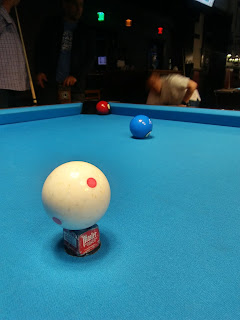Feels vs. Cycles - Closed Double Helix Model
When we say we feel something, we observe with more than just our eyes. We are collecting data through organic
functions: taste, smell, sight, sound touch, other senses to be
determined. Let's call a set of the undetermined "potential." The data
is stored, waiting to be processed. If not processed, the data will be
pushed down to make way for puzzles which can be solved now. We like
resolution. The jumble of unresolved potential just waits for more pieces to be
discovered.
I will
proceed with this meaning of the word 'feel'.
The collection of data we've
accrued since childhood does not have a solid definition for everything we
feel. But we do feel a situation is familiar even if we haven't been in
that place and time before. We try to identify a possible set of decisions
that caused us to be in that same place, that same feeling.
Feeling broke, feeling alone, feeling lost.
It's either habit or human nature to assign blame either to ourselves or to other humans for having arrived here again. Now I'm working two threads: pay attention.
Feeling broke, feeling alone, feeling lost.
It's either habit or human nature to assign blame either to ourselves or to other humans for having arrived here again. Now I'm working two threads: pay attention.
I think it's far more interesting
to determine where we got the data that makes this situation feel familiar. Our magnificent brains can assign memories to incoming data - memories that
actually have nothing to do with now. I have a particular incense that reminds
me of a time in my life where I didn't use incense. It's dark, warm, welcome
and sad, like a basement where my favorite things are boxed.
If you feel lost, take the time to
identify what specifically you feel with your senses. Does it remind you
of another time you felt lost? Chop off - sharply and at the head - any
wish to blame a person, even if it's yourself. There may be fault,
but it isn't helpful to blame. It's okay to objectively note negative interactions with another person, so as to avoid them later.
We feel things come around, like a
cycle. I have up days and down days. However, we sometimes feel a downward
or upward spiral, yeah? A helix is a spring-shape, slowly curving - I think the descent
is easier to notice because it's uncomfortable. There's also a slow ascent but
we enjoy it and don't take notice. Pain is easier to remember.
I'm going to start working with my
life as a Closed Double Helix - an intertwined set joined at each end. Not a
reversal; not winding back up the same path of the descent, but able to proceed
forward always. There is a plateau at each end, before the work begins again.When I feel lost, I'll try to pinpoint where I am on the closed double helix model. Ascending, descending, moving. All ways.
Life has its ups and downs, but any
move is rarely a straight shot. A roller coaster is often a good
metaphor, depending whether or not you like roller coasters. There are
ups, downs, wild loops and plateaus. Roller coaster metaphor also lends
well to Theism: designed by someone outside the system who may or may not
be riding it.
The closed double helix seems more
controlled and balanced; more navigable, even if a roller coaster sometimes feels
more accurate.











Comments
Post a Comment
Please comment. Just Don't be a dick. Please subscribe to this blog. Email confirmation will be sent - please verify your decision to receive my validations.